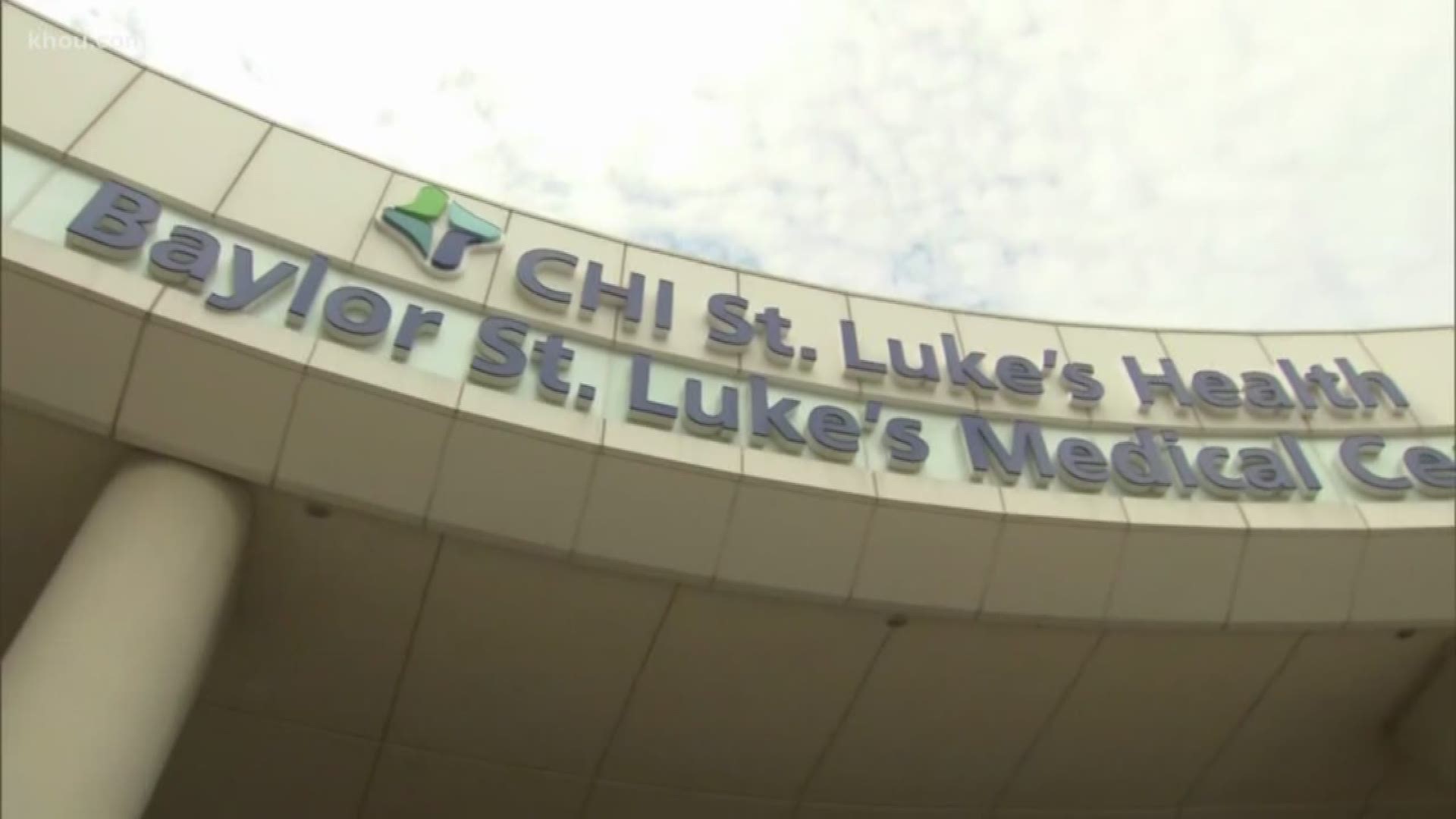HOUSTON — When a 75-year-old woman was rushed to Baylor St. Luke’s emergency room on December 2, she was in bad shape. The diabetic patient had bleeding on the brain, severe sepsis and an acute kidney injury. But it was a botched blood transfusion for anemia that killed her, St. Luke’s admits.
Here’s a timeline of the chain-reaction mistakes that led to the death of the woman identified only as “Patient 27.”
- The emergency department took blood from a different patient with no physician order and failed to discard the extra blood vials.
- After that patient was discharged, the Environmental Services department didn’t tell the emergency department staff that a blood sample was left in the room as required.
- The ED staff failed to search the room for blood and other samples after the patient was discharged as required.
- The ED nurse failed to correctly label the blood specimen, resulting in a vial with two different patient labels.
- The laboratory department failed to reject the double-labeled blood vial.
- The inpatient clinical staff failed to recognize possible signs and symptoms of blood transfusion adverse reaction.
- The nursing staff failed to check vital signs of Patient 27 during the blood transfusion.
Hours after she arrived at St. Luke’s, Patient 27 was transferred to the ICU and given the first of two blood transfusions.
Early on the morning of December 3, she was given a second blood transfusion. When her blood pressure plunged, they discovered the wrong blood type was used for both transfusions.
The woman had a total of four cardiac arrests and was placed on life support. Her family decided to withdraw care and Patient 27 died 25 hours after she arrived at St. Luke’s.
A number of other patients also had issues because of mislabeled blood and other transfusion issues.
Doug Lawson, who was appointed president of Baylor St. Luke’s in mid-January, said the hospital is taking several steps to improve the quality of patient care.
The bombshell report by the Centers for Medicare & Medicaid Services (CMS), comes just a few months after St. Luke’s was voluntarily suspended heart transplants to review patient deaths. The transplant surgeries resumed two weeks later.
“This is a challenging time for our hospital. While we cannot go back and change the past, we can focus our efforts on recreating the Baylor St. Luke’s you have known and trusted,” Lawson said in an open letter. “To our patients, their families, our employees and physicians, and the people of this city and region we serve, we will take the steps needed to ensure Baylor St. Luke’s fulfills our mission of care and compassion. I believe we will emerge stronger than ever.”
RELATED STORIES ON KHOU.COM:

